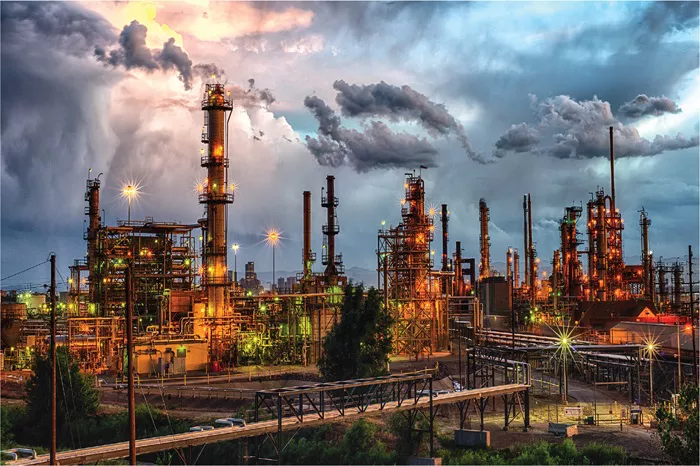Oil refiners across Asia, Europe, and the United States are experiencing significant declines in profitability, reaching multi-year lows. This downturn comes after a period of robust returns in the post-pandemic recovery, highlighting a notable slowdown in global demand.
The current weakness is largely attributed to soft consumer and industrial demand, particularly in China, where economic growth has stagnated and the adoption of electric vehicles increases. Additionally, the entry of new refineries in Africa, the Middle East, and Asia has intensified downward pressure on margins.
Companies like TotalEnergies and trading firms such as Glencore enjoyed substantial profits in 2022 and 2023, driven by supply shortages from geopolitical tensions, including Russia’s invasion of Ukraine and disruptions in Red Sea navigation. Rory Johnston, an analyst at Commodity Context, remarked that the refining supercycle appears to be ending as new refinery supply catches up with slowing fuel demand.
In Singapore, a key indicator for Asia’s refining market, profits fell to $1.63 a barrel on September 17, marking the lowest seasonal figure since 2020. Meanwhile, diesel margins in Asia hit a three-year low on the same date, according to LSEG data.
China’s struggling economy plays a significant role in this decline. In August, industrial output growth dropped to a five-month low, and oil refinery output decreased for the fifth consecutive month, hampered by weak fuel demand and reduced export margins.
In the United States, demand has also underperformed, with the 3-2-1 crack spread—a critical profitability measure—falling below $15 a barrel in late August, the lowest since early 2021. This spread reflects the typical yield of U.S. refiners processing three barrels of oil into two barrels of gasoline and one of diesel.
Gulf Coast gasoline margins, excluding renewable fuel blending obligations, averaged $4.65 a barrel as of September 13, down sharply from $15.78 a year prior. Diesel margins were just over $11, compared to over $40 last year, according to Oil Price Information Service data. The oversupply in the global diesel market, driven by weak demand, is a primary factor in margin deterioration.
The International Energy Agency forecasts that diesel and gasoil demand will average 28.3 million barrels per day (bpd) this year, a 0.9% decline from 2023. In contrast, demand for gasoline, jet fuel, LPG, and fuel oil is expected to increase.
By the end of August, European diesel margins dropped to about $13 a barrel, the lowest since December 2021, averaging $16.6 a barrel in August, less than half of last year’s $38.3.
While the immediate outlook for refining remains weak, analysts suggest that seasonal demand could provide some support. Raul Caldaria of Energy Aspects anticipates that refining profits will stay low through the end of the year, with potential increases due to higher winter diesel demand in Europe.
Despite robust gasoline demand in Europe, profit margins are under pressure, averaging $12.1 a barrel in August, down 61% from $31 in August 2023, according to LSEG data. Eni, an Italian refiner, indicated it is taking measures to address the margin decline but did not specify the actions.
The startup of several new refineries has exacerbated margin pressures, particularly affecting older facilities in Europe. Recently, Petroineos announced the closure of its Grangemouth refinery in Scotland, with similar shutdowns anticipated in Germany.
This year, new refining capacities include Nigeria’s 650,000 bpd Dangote plant, Mexico’s 340,000 bpd Dos Bocas, Kuwait’s 615,000 bpd Al Zour, and Oman’s 230,000 bpd Duqm. David Wech, chief economist at Vortexa, stated that global refining capacity currently exceeds demand, with new additions further complicating the landscape.
Bank of America analysts noted on September 13 that they expect global refining margins to continue their decline, having already fallen by 25% in the current quarter and 50% on a spot basis, coinciding with a year-on-year increase in refining capacity of 1.5 million bpd.
Related topic:
Does Redex Work on Diesel Engines?

